Talking About ‘Addict’ and More With Author Matt Doyle – Interview
Today we have author Matt Doyle with us! Check out our interview where we talk about his Sci-Fi book Addict, starring a lesbian protagonist, his writing style, interests, and more!
One thing is for sure, Matt Doyle is a person of many talents and interests. Not only is Matt a published author, he also runs a website, has had interesting experiences, and likes anime, video games, etc. Read on to know more about him.
Please introduce yourself to our readers.
Matt: Hi, everybody, my name is Matt and I’m a UK based author of speculative fiction. For the most part, my work tends to have a grounding in science-fiction, but I like to mix in bits and pieces of other genres as I go along, leaving most of my stories sitting in the genre-bent category. Depending on whether you’re defining bisexuality as an attraction to male and female or same and differing gender, I’m either bi or pan.
When I’m not working on a book or story, I can usually be found on my website. Here, as well as news on my various projects, you’ll find me blogging about various pop culture topics. This could be anything from anime reviews to video game news, favorite music to cryptozoology. The main thing for me is to put a focus on the positives of whichever subject I’m writing about; there’s too much negativity out on the net, so while I don’t shy away from stating if I have an issue with something, I tend to write more about the positives. Currently, I’m working at posting Monday to Friday, every week.
If you visit the site, you may notice that when I’m not working within the written word, I also work regularly on cosplay (or crossplay if we’re being technical). Thus far, my costumes have ranged from a full fursuit of Renamon from Digimon Tamers to modifying a motorcycle helmet to play Celty from Durarara!! Outside of this, I have also been known to dabble with digital art and have a number of pieces of fan art up on DeviantArt, as well as a few t-shirts on RedBubble.
In all, I do like to keep busy. In particular, trying new things has always been fun for me, and I’ve generally worked with the philosophy that if you want to try something and there’s no good reason not to, then you should go for it. Life is an adventure when you take that on board. For example, I spent nearly ten years working within the pro wrestling industry, both as a wrestler and in a variety of backstage roles. Had I not been willing to throw myself at things, I never would have experienced that.
On top of all that, I also have a day job, a partner, kids, and a number of pets. I sometimes wonder how I manage to find time to sleep at all!
How long have you been writing for? When did you realize you wanted to become an author?
Matt: I’ve been writing since my school days to one degree or another. I always remember that we did three creative writing assignments between the ages of ten and eleven and that we were told to just write whatever we wanted. That meant that the first story I wrote was a short horror piece called Malfunction, which was about a circus comprised entirely of robot clowns. The clowns malfunctioned and wreaked havoc on the circus goers.
After that, I wrote a werewolf story and a sequel to Malfunction. To be honest, I’m surprised that my parents never had a call home. When I moved onto high school, I continued writing in the same way, at least initially. Our English Literature teacher wanted to gauge our current writing levels in the first year and set us the same task of writing whatever we wanted, but this time, we read the stories out to the class.
After a couple of romances and stories about playing for your favorite soccer team garnered applause from the class, I was certain that my story, Dreadlocks, would get a similar reaction. It didn’t. It turns out that horror wasn’t what my classmates expected, and I ended up sitting in front of a group of my peers, all of whom were staring at me in a stunned silence. The teacher gave me full marks, and the entire year group decided that I was weird. I did actually branch out from there and start writing stories that were akin to Urban Fantasy too though.
The main thing to note here is that books were a great source of comfort for me from a young age. From about the age of nine, if I was sick, I’d sit back with a Discworld novel or a Point Horror, and just get lost in the worlds that others created. While the reactions that my peers gave to my work were far from that, I was aware that people were still making a connection with what I was writing, even if not the enjoyment that I wanted. The way I saw it was that, if I kept going, I was bound to write something that others could enjoy sooner or later. And that was what I wanted: to provide the entertainment and comfort for others that books always gave me.
So, I just kept working at it. Over the years that followed, I started reading authors like Neil Gaiman and H.P. Lovecraft, then Iain M Banks and Richard K Morgan. All the while, I was trying to write in a similar style to whatever I was reading, which … it was a learning experience, certainly, but I did end up with a lot of stories that felt like pastiches of other things. While I do think that it helped in the long run, I’m not focused on imitating others so completely now and have gotten better at writing as me with a few nods to influences thrown in.
Would like to talk about other authors who’ve inspired you?
Matt: Right now, Patricia Briggs is a big inspiration for me. I picked up the second and third of her ‘Mercy Thompson’ books in a sale and ordered the first shortly after. While I still think that the first book is the weakest in the series, I got hooked pretty quickly. I like the way she paces her stories, and in particular the way she structures the last few chapters of each book. That build up is something that I like to draw on when I get towards the end of a story.
Mark Z Danielewski is another one. I absolutely love his House of Leaves. That was my introduction to ergodic fiction, and it was a real eye-opener! While I don’t write in that style myself, I do like to look at that as a reminder that I can try new ideas in my work, no matter how odd they may seem at the time. Terry Pratchett remains a constant, too, as his work always felt like something that was easy to read, but that you could get even more from if you really wanted to dig deeper into the narrative. I love that level of accessibility.
It may sound strange, but a lot of my inspiration comes from outside literature. I know that I’m not alone in this, I think that Scott Sigler has stated before that he draws inspiration from film, but I find that it’s not something that a lot of people expect an author to say. When you look at Addict for example, I wrote it after binge watching The Maltese Falcon, Blade Runner, and L.A. Confidential. Sure, all three films are based on books, but it was the film versions that sparked the ideas.
In the same way, my other series, The Spark Form Chronicles, draws on a lot from my childhood in the 90’s; it has collectible card gaming, anime style holographic card battles, pro wrestling style production and interviews, some anthropomorphic animals alongside the humans, and a bit of AI philosophy. When a reviewer described it as being like his childhood but written for him as an adult, that was a really cool thing for me.
Honestly, a lot of where inspiration comes will vary for me, depending on the story. I think that that’s important to remember when writing though. If certain writers or books inspire you, then great, but don’t be afraid to embrace other things, too.
What’s your writing process like?
Matt: In general, I try to follow a simple routine. I write at least an hour, every night, at the very least for Monday to Friday. The last week of every month, I take a break from fiction and focus on the blog posts for the next month.
I can get a little scrappy with it, too, though. If an idea strikes, I’ll at least try to get it noted down, and if there’s a spare moment, I’ll tend to get a little more writing done, too. The thing is, when you have kids, it’s not always easy to stick with a rigid routine, and that’s fine. As long as I’ve done the best that I can with the time that I have, I’m usually content with that.
Have you ever experienced writer’s block? Any particular thing you do to deal with it?
Matt: Oh, absolutely. Sometimes, you hit a point where things just aren’t going the way that you want them to. Either you can’t get anything down on paper, or you don’t feel happy with what you’re writing. I wish that there was a simple fix for this, but the truth is, different people deal with it in different ways.
For me, I try a three-step approach. Step one is to try to power through it. If that doesn’t work, I move on to step two and take a break. If things are still not working out, then step three is to put it all aside for another day. I know, it sounds like a cop-out, right? I’ve found that it works, though. Sometimes, taking a day out is exactly what’s needed.
Tell us a bit about Addict. I understand that it’s a part of a series. Who’s the main protagonist? What kind of readers will it appeal to?
Matt: Addict is the first book in the Cassie Tam Files, which is a series of science-fiction/crime noir novels being published by NineStar Press. The books are set in a fictional near-future city called New Hopeland, which was built on Utah’s Great Salt Lake Desert with the aim of being a shining example of humanity’s technological advances. Unfortunately, the city soon fell into corruption, and both sides of the law are now pretty tangled when you get down to it. Luckily for those who reside there, there are other options when the police are no help, and as such, the series follows a PI named Cassie Tam as she works through the cases that the police won’t touch or take seriously.
Cassie herself is a twenty-seven-year-old Chinese-Canadian woman who moved down to New Hopeland from Vancouver. She’s strong-willed and has a clear sense of what she views as right and wrong, but she understands well how the city has created a weird balance between the law and its own criminal underbelly. She pursues her intended outcome to each case with a severe stubbornness, even if it’s clear that doing so is likely to land her in a lot of trouble. In a way, she’s almost addicted to digging when she sees something wrong, and has never really learned when to back away. Cassie also has a tendency to be a bit judgmental which, while usually based on personal experience, does mean that she can gain some inaccurate early conceptions of people.
In Addict, Cassie is suffering from a lull in work. As such, when Lori Redwood comes knocking late at night, she takes the case, even though she believes that it’s essentially going to come down to proving that the police were right in their original conclusions. You see, Lori’s brother Eddie was a VR Junkie – someone who, without having a big business contract to support him, grew to be addicted to the virtual reality environment that has grown out of the internet. VR Junkies die quite frequently in New Hopeland, and the police declared Eddie’s death to be as the result of an accidental overdose on the synthetic stimulants that Junkies regularly use to enhance their experience. Lori doesn’t believe this though, and the more that Cassie digs, the more that she starts to think that Lori may be right.
While Cassie is the only POV character, Lori Redwood is an important character in the book. Like a lot of crime noir, there is some tension between her and our intrepid detective, though the story never really gets too risqué. She’s twenty-four, and a Tech Shifter – someone who uses a flexible metal exoskeleton to roleplay as an animal. The whole Tech Shifting concept was a really fun one to work with, especially on a conceptual level. The way the suits work borrows a lot from the furry fandom, but the reason for using the suits varies considerably from person to person.
For Lori, it’s a non-sexual form of petplay that she uses to unwind after stressful periods at work, which comes as a surprise to Cassie, as it flies against her general feelings about Tech Shifters.
As to who would enjoy Addict, I think that that really comes down to what you want from your fiction more than anything else. The best way that I can describe it would be through some random points.
First of all, while you do have the F/F romance, it is treated as a subplot rather than the main focus of the story. This also isn’t a coming out story. Cassie is both out as a lesbian and very comfortable with this, and Lori is equally comfortable being attracted to the detective. Like I said above, the book doesn’t get too risqué, so don’t expect it to run into the erotica category.
The tech concepts are a big part of the story, but never take the full focus away from the characters. They’re also all written to be derivative of modern things, so as to give rise to the possibility that New Hopeland is a viable potential future. At the same time, the mystery plays out with clear anchors in how technology has assimilated itself as part of the daily lives of New Hopeland’s citizens.
So, I guess that you’d like the book if you’re looking for an LGBTQ+ cyberpunk story that doesn’t feature erotic scenes, but does present some funky futuristic tech and a twisty-turny mystery.
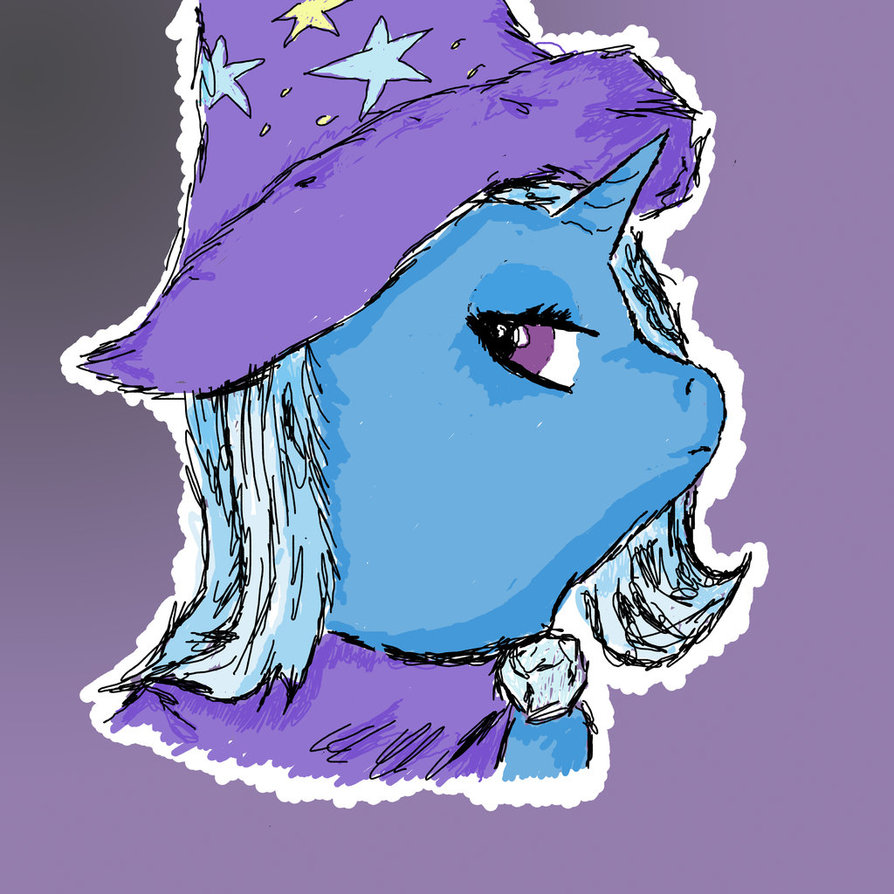
Would you like to share your opinions about the current state of LGBTQ+ literature? Has it gotten better?
Matt: Oh, it is much better now. The thing is, when I was struggling with my own sexuality, it was the era of 56K dial-up modems. The internet was far less vast, and you’d only really come across things if you knew what you were looking for. When you were confused and unsure what to do, it was very easy to miss some useful resources. For me, seeing someone like me portrayed in fiction would have been great, but there really weren’t many examples out there. Now, there are plenty of publishers that outright specialize in LGBTA+ fiction, and the big-name publishing houses are working towards being more inclusive, too!
What I love about the current scene is how much of a variety there is. There are contemporary romance tales and plenty of coming out stories. They’re important, because they not only provide an outlet for those struggling with themselves, but also provide a representation of the happy endings that people love in romance. At the same time, we’re also getting a lot of genre fiction now; science fiction, fantasy, horror, and crime are all breaking into the market. What makes that so wonderful to see is that I know from experience that not everyone wants to just read romance; they want to see bits of themselves in the other types of stories that they grew up watching and reading. That sheer variety is so, so important moving forward.
Do you have any advice you’d like to give aspiring authors?
Matt: Keep going! Don’t get too hung up on what other people are doing, and don’t get too disheartened if things don’t immediately pan out how you want them to. Just keep going, keep writing the stories that you want to read, and don’t give up.
Any opinions regarding indie and traditional publishing?
Matt: I’ve been fortunate enough to have worked on books with a variety of different people. As it stands, this has ranged from small press houses to self-publishing. I know that some still view books that aren’t traditionally published as having an instant black mark, but I do think that both routes have their own positives to consider.
On top of that, when you look at how other industries are changing – such as non-record label music publishing and the user-driven entertainment content of sites such as YouTube – self-published novels are really just part of this overall landscape.
When it comes to indie publishing, I will admit that the output is varied (much as it is in any creative pursuit). There have been some really good things to come out of this side of the industry, such as Hugh Howey’s Wool. I think that, if you’re working on something a little too niche for traditional publishing, or if your timing just isn’t great with submissions (in terms of genre), then the indie route is certainly viable. Sure, it’s an oversaturated market, and yes, you do have to search for the really good stuff sometimes, but it’s not without merit. Providing you do the legwork, you have a good amount of control over your potential success, and that’s no bad thing.
Meanwhile, your experience with traditional publishing will depend on who you work with. I’ve been really lucky with NineStar Press as they provided multiple layers of editing, a professional cover, and a full marketing campaign, all without costing me a penny. That meant that I could get on with writing, and throwing in other advertising things myself as and when needed.
By the same token, I recently had a story titled Nor’Killik published as part of Bad Dog Books’ ROAR Volume 8 anthology. The whole experience was great from start to finish, with access to professional editing and quick responses to queries. On the other hand, I’ve also had other experiences with press houses that were less favorable. I won’t go into those here, but I would say that you really do have to be careful sometimes.
So, in summary, I think that both indie and traditional publishing are vital parts of the industry. They each cater to different authors, projects and readers, and both contribute to the literary world that we love. That, in itself, is no bad thing.
Are there any upcoming works you’d like to share with our readers?
Well, the first thing I want to mention is that the second Cassie Tam Files book is with NineStar Press. We’ll be working on the editing and so on to get it ready for release, so that should hopefully be out sooner rather than later. I’ve also started mapping out the mystery for book three.
The Spark Form Chronicles is also continuing, and I’m hoping to have the next book in that series out before New Year. Outside of that, I’m working on some stories for various anthology calls, so my hope is that a few of those will pan out.
My website is growing, too, and I’m striving to keep the quality up there, as well as throwing in some stuff that you likely won’t see in many other places (such as my tournament-style anime review series, Crunchyroll of the Dice). For the most part, though, things come along when they come along, so I’d just say to look out for news as it arrives.
–
You can find author Matt Doyle on Twitter, Facebook, Goodreads, DeviantArt, and his website.
You can also check out his books on Amazon and NineStar Press.
Addict by author Matt Doyle is currently available for purchase. I’ll be reviewing it soon.
Have you read books by Matt Doyle? Let us know!
Author: Farid-ul-Haq
Farid has a Double Masters in Psychology and Biotechnology as well as an M.Phil in Molecular Genetics. He is the author of numerous books including Missing in Somerville, and The Game Master of Somerville. He gives us insight into comics, books, TV shows, anime/manga, video games, and movies.
Help support independent journalism. Subscribe to our Patreon.
Copyright © The Geekiary
Do not copy our content in whole to other websites. If you are reading this anywhere besides TheGeekiary.com, it has been stolen.Read our

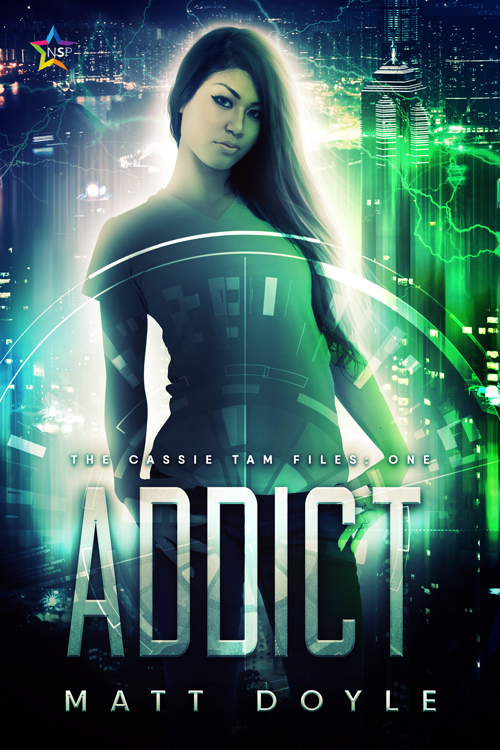
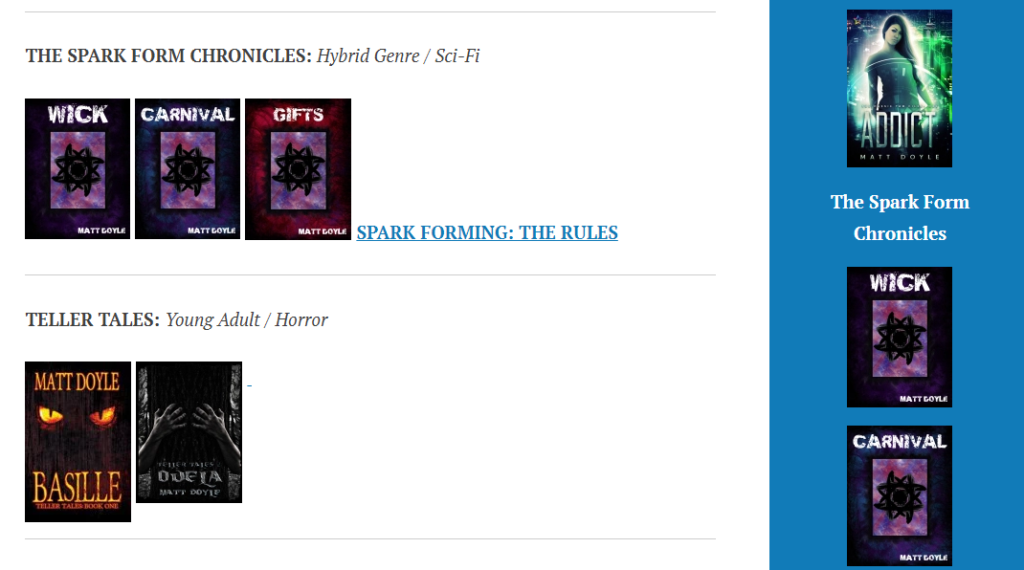
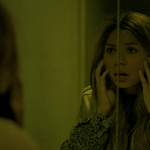

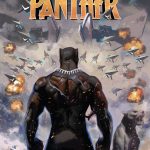
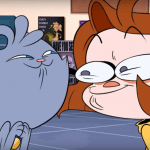
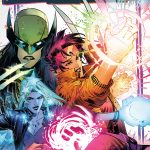
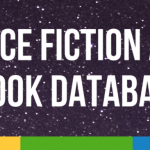
1 thought on “Talking About ‘Addict’ and More With Author Matt Doyle – Interview”
Comments are closed.